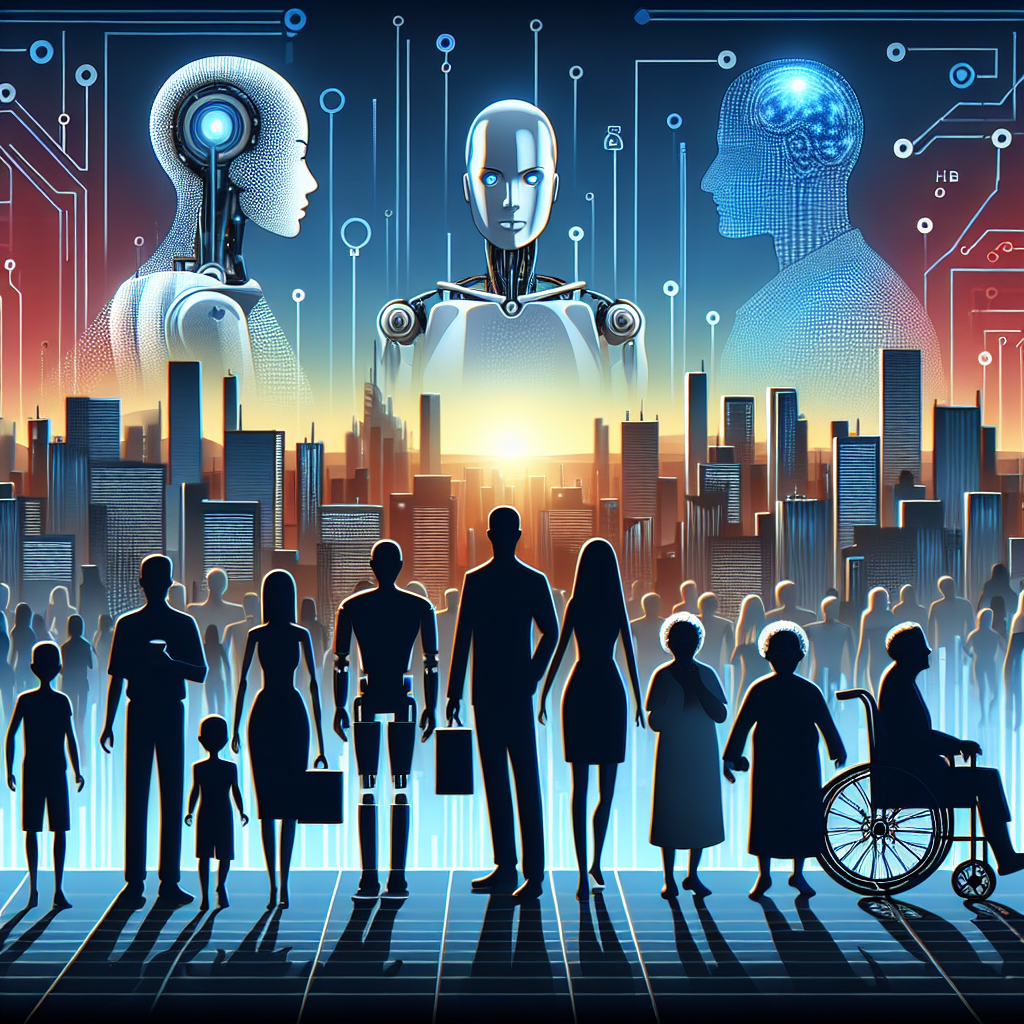Artificial General Intelligence (AGI) is a term that refers to a type of artificial intelligence that possesses the ability to understand, learn, and apply knowledge in a way that is similar to human cognitive abilities. While AGI has the potential to revolutionize many aspects of society, it also presents a number of challenges and ethical considerations that must be navigated carefully. In this article, we will explore the impact of AGI on society, the challenges and opportunities it presents, and how we can ensure that the development of AGI is done in a responsible and ethical manner.
The Impact of AGI on Society
AGI has the potential to have a profound impact on society in a variety of ways. One of the most significant impacts of AGI is its potential to revolutionize industries such as healthcare, transportation, and finance. AGI has the ability to process vast amounts of data and make complex decisions in a fraction of the time it would take a human to do so. This could lead to significant improvements in efficiency, accuracy, and cost-effectiveness in a wide range of industries.
In healthcare, for example, AGI could be used to analyze medical images and data to diagnose diseases more accurately and quickly than human doctors. In transportation, AGI could be used to optimize traffic flow and reduce accidents on the roads. In finance, AGI could be used to analyze market trends and make investment decisions with a high degree of accuracy.
AGI also has the potential to create new jobs and industries that do not currently exist. As AGI becomes more advanced, there will be a growing need for experts in AI development, programming, and ethics. This could lead to the creation of new job opportunities and economic growth in sectors that are related to AI technologies.
Challenges and Opportunities
While AGI has the potential to bring about many positive changes in society, it also presents a number of challenges that must be addressed. One of the biggest challenges of AGI is ensuring that it is developed in a way that is safe and ethical. There are concerns about the potential for AGI to be misused, either intentionally or unintentionally, leading to unintended consequences.
Another challenge of AGI is the potential for job displacement. As AGI becomes more advanced, there is a growing concern that it could automate many jobs that are currently performed by humans. This could lead to widespread unemployment and economic instability if not managed properly.
However, there are also many opportunities that come with the development of AGI. AGI has the potential to enhance human creativity and productivity by automating repetitive tasks and allowing humans to focus on more complex and creative endeavors. AGI could also help to address some of the most pressing challenges facing society, such as climate change, poverty, and disease.
Navigating the Challenges and Opportunities
In order to navigate the challenges and opportunities presented by AGI, it is essential that we approach its development with caution and foresight. One of the key ways to ensure the safe and ethical development of AGI is to establish clear guidelines and regulations that govern its use. This could include guidelines for how AGI should be developed, tested, and deployed, as well as mechanisms for accountability and oversight.
It is also important to involve a diverse range of stakeholders in the development of AGI, including experts in AI, ethics, and policy, as well as representatives from affected industries and communities. By engaging with a wide range of perspectives, we can ensure that the development of AGI is done in a way that is inclusive and beneficial to society as a whole.
Furthermore, it is important to invest in education and training programs that prepare individuals for the changes that AGI will bring about in the workforce. This could include programs that teach AI skills, as well as programs that help individuals transition to new roles and industries that are created as a result of AGI.
FAQs
Q: What are the potential risks of AGI?
A: One of the potential risks of AGI is the potential for it to be misused, either intentionally or unintentionally, leading to unintended consequences. There are concerns about the potential for AGI to be used for malicious purposes, such as surveillance, warfare, or propaganda.
Q: How can we ensure that AGI is developed in a safe and ethical manner?
A: One way to ensure the safe and ethical development of AGI is to establish clear guidelines and regulations that govern its use. This could include guidelines for how AGI should be developed, tested, and deployed, as well as mechanisms for accountability and oversight.
Q: What are some of the potential benefits of AGI?
A: AGI has the potential to revolutionize industries such as healthcare, transportation, and finance by improving efficiency, accuracy, and cost-effectiveness. AGI also has the potential to create new jobs and industries that do not currently exist.
In conclusion, AGI has the potential to revolutionize many aspects of society, but it also presents a number of challenges that must be navigated carefully. By approaching the development of AGI with caution and foresight, and by engaging with a diverse range of stakeholders, we can ensure that AGI is developed in a way that is safe, ethical, and beneficial to society as a whole.

